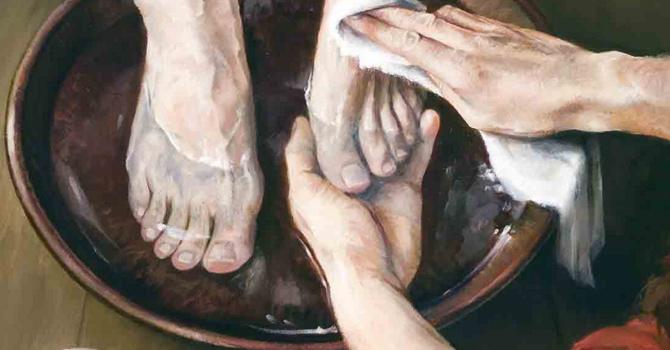
Today’s scripture is again punctuated by paradoxes and misunderstanding. Jesus takes an every-day task (washing the feet of guests) and turns the world upside down by using it as a prophetic action which points to the heart of his teaching, word, and life ethos. This story begins the second half of John’s gospel called the Book of Signs” which focuses around the theme of the hour of Jesus having come and what that means. The signs of the first half (the Book of Signs in John 1:39-12:50) point to this paradoxical truth.
Last time we read of the raising of Lazarus from the dead, the confession of faith of Mary before this miraculous sign and the Jesus identifying himself as the resurrection and the life. It’s a radical new conception of life and living – even among death – as well as faith even in doubt and darkness. Different groups have responded to this event: the religious leaders want to eliminate Jesus as the cause of their problems, Mary anoints the feet of Jesus symbolically preparing him for death, the pilgrim crowds come to Jerusalem for Passover herald Jesus as the Messiah leader come to deliver their nation from the hands of the Roman military power.
Jesus gathers with his friends for a private meal, most likely celebrating the Passover meal: symbol of God’s deliverance of the Jews from slavery in Egypt and the oppressive power of Pharaoh. While at the table he challenges his disciples to grapple with what he taught in Bethany, “The one who believes in me will live, even though they die.” He questions everything that they’ve understood, imagined and held dear in regards to the meaning, purpose and process of life. Looked at as a great political threat by the elite class, hungered for as a revolutionary hero by the populist masses, Jesus takes a meal about freedom, and transforms it by his actions to an experience of service love – how God loves us – as the ultimate expression of divine power and presence.
Jesus washes their feet. He does the mundane and humiliating task to be done by the lowest house servant or slave. He then equates this upside down action with how we are to love and live, setting an example of service (love of all neighbors) as the ultimate vocation. Only John tells this story of foot-washing. Matthew, Mark and Luke instead tell the story of Jesus sharing the first communion with his friends, equating the bread and wine with his blood and body, poured out, freely given for freedom-life for all. Did John this that this prophetic action of foot washing was more poignantly pregnant with the word of Jesus than communion?
Questions for the practice of Examen & Contemplation
- What shimmers for you in this story?
- How have you experienced this truth about power & service?
- Have you ever washed (or had your feet) washed in public? What did it mean for you? How might we translate that prophetic action for today’s world?
- How are you challenged by the example of Jesus in our selfie-obsessed, self-promoting culture of self-adulation?
Download a PDF study sheet for this text that we use in our weekly discussion class @CAPCOakland HERE.